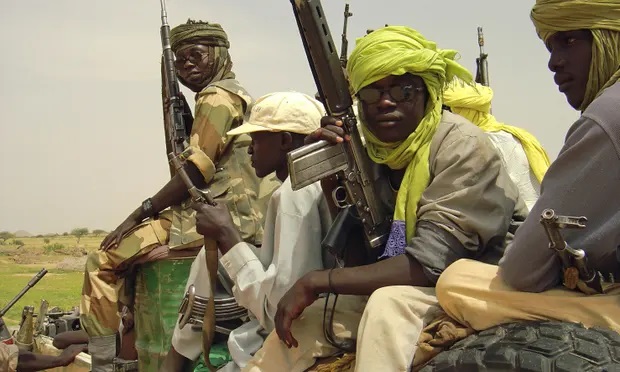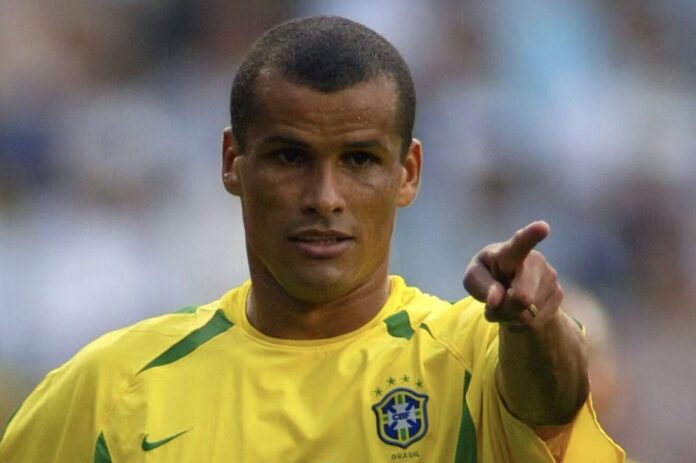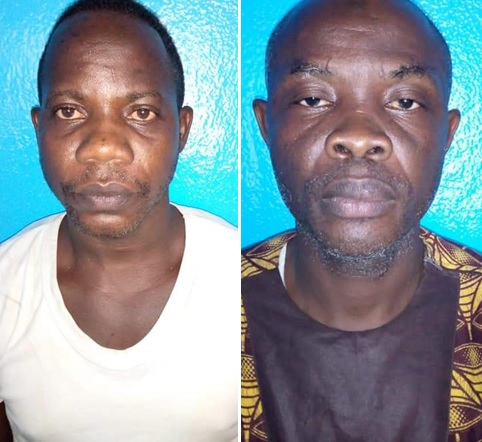Darfur is a huge and largely arid swath of western and south-western Sudan that has suffered recurrent conflict, drought, famine and many other problems for decades. It covers 500,000 sq km, is split into five states, and has a population of about 10 million, of which up to a tenth are living in camps for those displaced from their homes. Conditions vary, but much of the region is a lawless zone where militias and other armed groups attack civilians with virtual impunity. Darfur is also a regional hub for trafficking routes and a centre of gold mining.
Analysts trace many of the roots of the latest conflict in Sudan back to appalling violence and human rights abuses – possibly genocide – in Darfur about 20 years ago. One of the principal factions now battling for supremacy in Sudan, the Rapid Support Forces (RSF), has its origins in the Janjaweed, a feared Arab counterinsurgency force created under the former regime of dictator Omar al-Bashir. The region remains extremely violent, with much fighting between Arab and non-Arab tribes over the past year.
The climate crisis has exacerbated violence in Darfur. The UN has reported that almost two-thirds of people in some parts of Darfur are “food insecure”, one of the highest levels on the continent. Scarcity contributes to conflict. For example, the Arab Rizeigat tribe is engaged in tense and often violent competition with the non-Arab Masalit for increasingly rare cultivable land and water.
Why is Darfur important?
Darfur is a stronghold for Mohamed Hamdan Dagalo, also known as Hemedti, who leads the RSF and is fighting the regular army loyal to Sudan’s de facto military commander, Gen Abdel Fattah al-Burhan, for control of the country. A high proportion of RSF recruits are still from Darfur, where they have continued to terrorise communities in recent years. Many come from Hemedti’s own Rizeigat tribe. The RSF has invested significant resources in Darfur in recent years, and seeks to control its strategic assets: air strips, mines, water sources and major roads.
If things go badly for Dagalo elsewhere in Sudan – especially in the capital, Khartoum – he is expected to withdraw to Darfur where he would be virtually impregnable unless Burhan can raise a powerful force from Dagalo’s rivals in the region. One is Musa Hilal, a onetime leader of the Janjaweed who was marginalised by Hemedti.
What is happening there?
After Khartoum, Darfur has seen the most violence since fighting broke out between the RSF and forces loyal to Burhan almost four weeks ago. Hundreds have died. The factional fighting has also offered an opportunity to dozens of local groups and militias, often ethnically based, to attack longstanding rivals or competitors. Victims are often non-Arab populations, especially those in camps for the displaced who are dependent on humanitarian assistance and are very vulnerable. The infrastructure supporting the vital aid effort appears to have been directly targeted.
One risk is that the conflict in Darfur draws in criminals, rebels and others from across the region. So far, there is little sign of this, and rebels from Central African Republic have travelled in the other direction, leaving Darfur as insecurity grows in recent weeks to return home. Some fighters who have strong ethnic or other links to Dagalo and his forces have come to their aid but these are relatively few in number, analysts say. South Sudanese militias have not mobilised either, diplomatic sources said, and Sudanese mercenaries in Libya have stayed put for now.
The free press is under attack from multiple forces. Media outlets are closing their doors, victims to a broken business model. In much of the world, journalism is morphing into propaganda, as governments dictate what can and can’t be printed. In the last year alone, hundreds of reporters have been killed or imprisoned for doing their jobs. The UN reports that 85% of the world’s population experienced a decline in press freedom in their country in recent years.
As you join us today from Liberia we hope you will consider supporting us in our efforts to do something about this. Despite the financial challenges plaguing the media industry, we’ve decided to keep our journalism paywall-free, because we believe everyone has the right to high-quality, fact-checked reporting. And we maintain our independence thanks to generosity from readers all over the world, who understand that supporting the free press is an investment in an informed and empowered public.
Unlike many others, we have no billionaire owner – this helps us maintain the freedom to fearlessly chase the truth and report it with integrity. Your support will allow us to continue to work with trademark determination and passion to bring you journalism that’s always free from commercial or political interference. Source: theguardian.com







